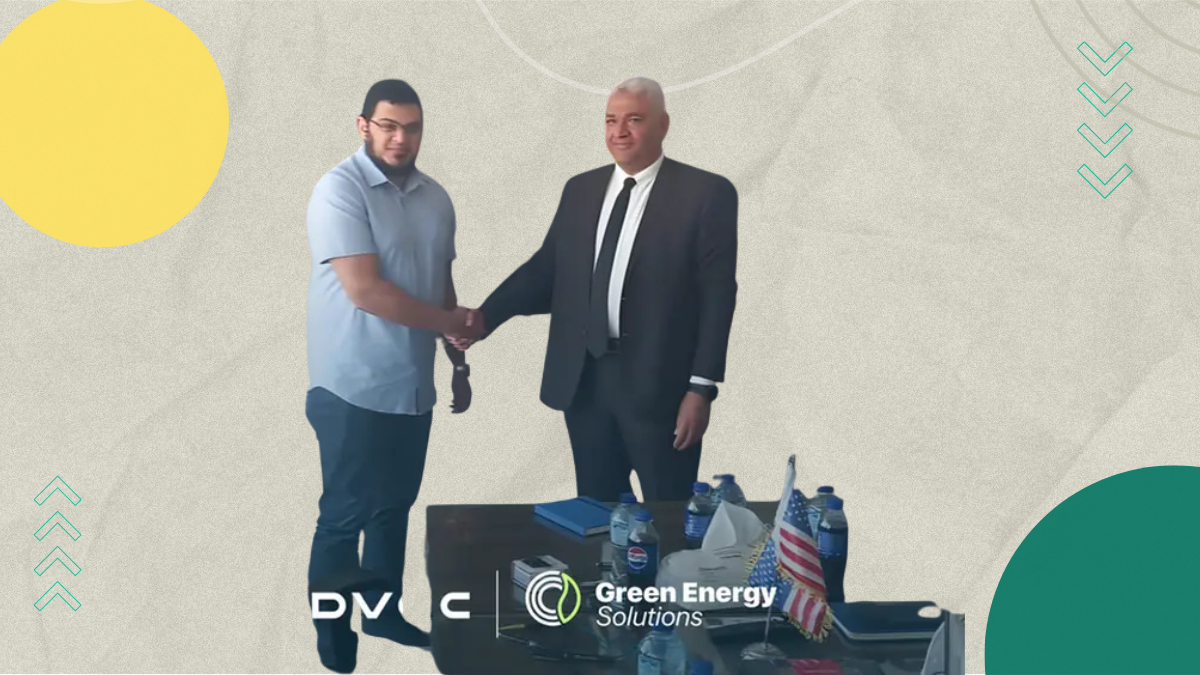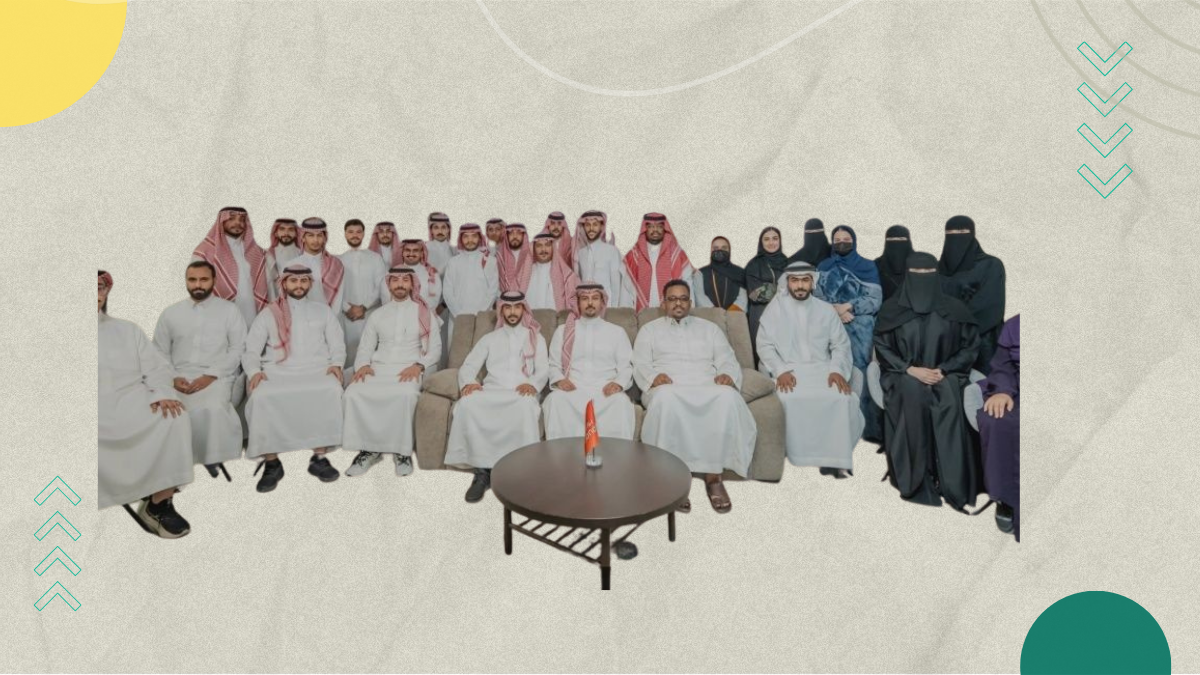I am Ahmad A. Alforaih and I built digital banking products, and applied the same thinking to startups

8 min
Today on MasterMinds, we meet a Saudi entrepreneur and digital banking expert who is redefining how innovation and governance can coexist. Ahmad A. Alforaih has built a career that bridges two worlds — the structured discipline of banking and the dynamic creativity of entrepreneurship.
As a Digital Banking Product Owner, he has led transformation projects at leading institutions like Riyad Bank and Emirates NBD, driving customer-centric innovation across digital channels. At the same time, Ahmad has founded and co-founded multiple ventures — including WulfyShop, MtajerHub, and Masanoz — each addressing unique market needs in e-commerce, digital assets, and healthy consumer products.
His journey reflects a mindset rooted in adaptability, curiosity, and impact. Whether launching startups or shaping digital strategy inside major banks, Ahmad believes true innovation happens where structure meets creativity — and where technology serves people, not the other way around.
As an entrepreneur who founded multiple ventures, what pushed you to enter the entrepreneurial space alongside your banking career?
Entrepreneurship came very naturally to me. I’ve always had an instinct to build, experiment, and test ideas outside the boundaries of corporate structures. While my career in banking provided stability, structure, and valuable exposure, my entrepreneurial ventures gave me the freedom to experiment without limits.
The push came from a strong belief that opportunities are everywhere, especially in Saudi Arabia’s rapidly evolving market. I wanted to apply what I learned in digital banking such as governance, compliance, and customer journeys to real ventures that solve tangible problems. Banking taught me discipline, and entrepreneurship gave me the playground to apply creativity.
Let’s start from the beginning… what attracted you to the field of digital banking and managing digital channels?
From the very beginning, I have always been fascinated by how technology can fundamentally change the way people live and interact with services. Banking, for me, was not just about money or transactions, it was about experience and trust. When I saw how digital channels were reshaping industries, I realized that banking would eventually undergo the same transformation.
What really attracted me was the opportunity to be part of this wave and to shape how customers in my region experience financial services. Working in digital banking gave me a platform to merge two passions: innovation and customer service. Every new feature or journey we build has the power to make banking simpler, faster, and more human. That constant challenge of asking, “How can we make this better for the customer?” is what drives me every single day.
After WulfyShop, you launched MtajerHub and co-founded Masanoz. What inspired these ventures, and how did you apply your banking expertise to them?
Both ventures came from observing gaps in the Saudi market. • MtajerHub was born when I noticed the lack of a trusted platform for buying and selling digital assets like e-commerce stores, domains, or social media accounts.
With the digital economy growing rapidly, this platform is my attempt to bring transparency and trust to that space. • Masanoz, on the other hand, was inspired by the shift toward healthier lifestyles. It focuses on gluten-free and low-oil chips, a very different industry, but one with strong demand in Saudi Arabia. In both, my banking expertise in risk management, compliance, and customer-centric processes proved invaluable. It allowed me to build ventures that not only solve problems but also operate with professionalism and sustainability.
Do you think traditional banks can keep up with startups in delivering innovative digital solutions, or will startups take the lead?
Startups have the advantage of speed and agility, but banks have scale and trust. I don’t think it’s about one versus the other. The future will be shaped by collaboration between banks and startups. Banks will adopt innovations faster by partnering, while startups will gain credibility and customer access through banks.
How did you manage to balance innovation with compliance and governance requirements in the banking sector?
I often describe it as working in a sandbox within the bank. The idea is to test and innovate in controlled environments, where risks are limited and learnings are maximized. This allows innovation to flourish while still respecting compliance frameworks.
I also believe in early engagement with regulators and compliance teams. Instead of building a product and then asking for approval, it’s more effective to involve them from day one. That way, innovation is built hand-in-hand with governance rather than seen as two opposing forces.
If you could go back in time to your first startup, what’s the one thing you would have done differently?
I would have invested more time in marketing and customer feedback. Too often, founders spend months building the perfect product, only to realize they should have spoken to customers earlier. Early feedback would have saved me time and given me clarity sooner.
In your opinion, what single skill do young people most need to succeed in today’s job market?
If I had to pick one, it would be adaptability. The market is changing faster than ever. Technologies rise and fall, industries evolve, and customer expectations shift overnight. Those who can learn quickly, unlearn outdated habits, and adapt to new realities will thrive.
Is there a person or a book that has inspired you the most in your career?
Yes, The Lean Startup by Eric Ries. The book taught me the philosophy of building fast, learning faster, and treating failure as part of the process. It fundamentally shaped how I think about both banking innovation and entrepreneurship.
What advice would you give to young Saudis or Arabs who want to pursue a career as a Product Owner or in Digital Banking?
Start by being hands-on. Don’t just read about product management, build, test, and experiment with small projects.
Learn to think from the customer’s perspective. And most importantly, understand that being a Product Owner is not just about features, it’s about solving real customer problems in a way that balances business, technology, and compliance.
What were the key lessons you learned from your first entrepreneurial journey with WulfyShop?
WulfyShop was my first real entrepreneurial venture, and like any first startup, it was both exciting and humbling. The key lessons I took away were:
1. Customer experience is everything. Even if your product isn’t perfect, if the customer feels valued and supported, they’ll come back.
2. Control your spending. It’s tempting to invest heavily in design, marketing, or features, but lean operations in the early stage are critical to survival.
3. Timing matters. Sometimes an idea is good, but the market isn’t ready. Recognizing this early can save you time and energy. That experience shaped how I approached every venture afterward, more strategic, more focused on solving real problems, and less distracted by the “noise” of running a business.
What’s the most valuable lesson you’ve learned as an entrepreneur that you’d like to share with young people entering the field today?
The biggest lesson is that failure is not the end, it’s feedback. Every mistake teaches you something about your market, your product, or yourself. The worst thing you can do is freeze in fear of failure. The best thing you can do is act, learn, and adapt.
What’s your next big goal—whether in banking or entrepreneurship?
In banking, my goal is to leave a clear mark on customer experience in Saudi Arabia, whether through digital onboarding, personal finance solutions, or smarter channels.
On the entrepreneurial side, I want to scale MtajerHub into the region’s go-to marketplace for digital assets. I believe it can redefine how Saudis and Arabs view digital businesses as valuable, tradable assets.
When it comes to customer experience, what do you think is still missing in the Gulf banking sector?
Two things: simplicity and personalization. Many banking services are still complicated, with long processes and unclear communication.
Customers also crave personalized experiences, not one-size-fits-all products. Bridging these gaps will take Gulf banking to the next level.
You’ve worked on digital transformation projects at Riyad Bank and Emirates NBD. What were the biggest challenges you faced while leading these projects?
The challenges were multi-layered. The first was integrating new systems with legacy infrastructure. Many banks still run on decades-old technology, and replacing or modernizing it without disrupting service is like repairing an engine while the car is still running.
The second was managing organizational change. People are naturally resistant to change, and when you introduce new digital ways of working, you’re not just changing systems, you’re changing culture. Convincing employees, departments, and sometimes even customers to adopt these new systems required patience, communication, and leadership.
Finally, the third challenge was balancing innovation with compliance. In the financial sector, you can’t move fast and break things. Every innovation must pass through a lens of governance, regulation, and customer protection, which can slow things down but also ensures long-term trust.
If someone has never heard of Ahmad A. Alforaih, how would you describe what you do?
I describe myself as a bridge between banking and entrepreneurship. On one side, I work as a Product Manager driving digital transformation inside large banks.
On the other, I’m an entrepreneur building ventures like MtajerHub and Masanoz. My passion is connecting innovation with structure, creating value both inside institutions and in the open market.
 AI
AI Saudi Arabia
Saudi Arabia UAE
UAE Egypt
Egypt








